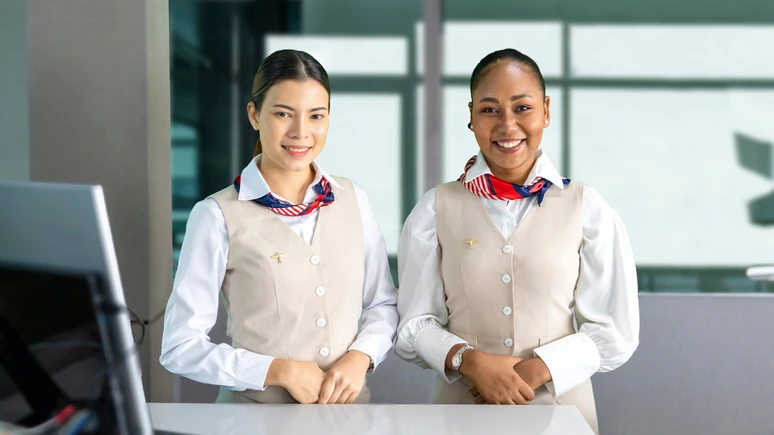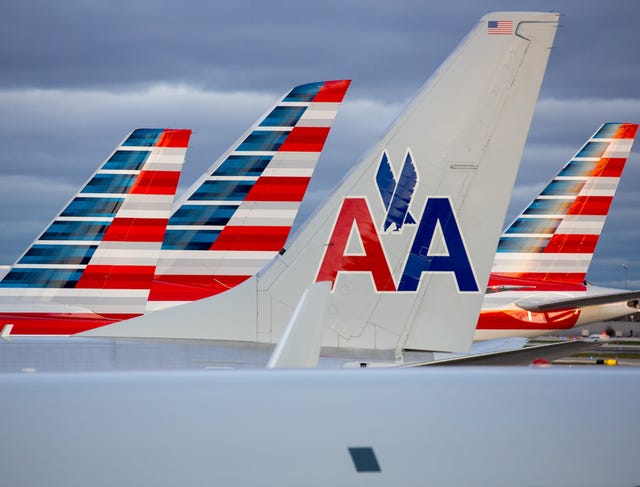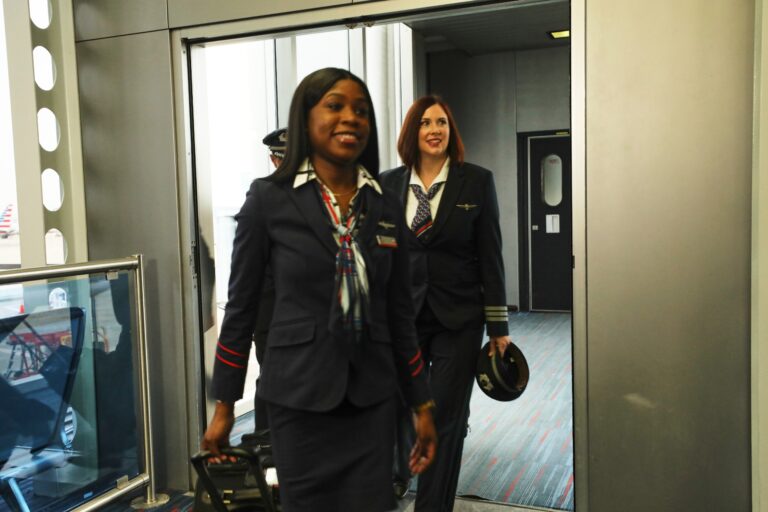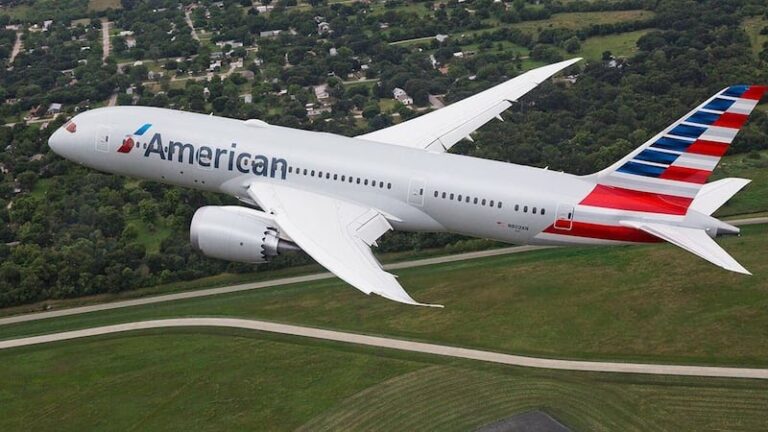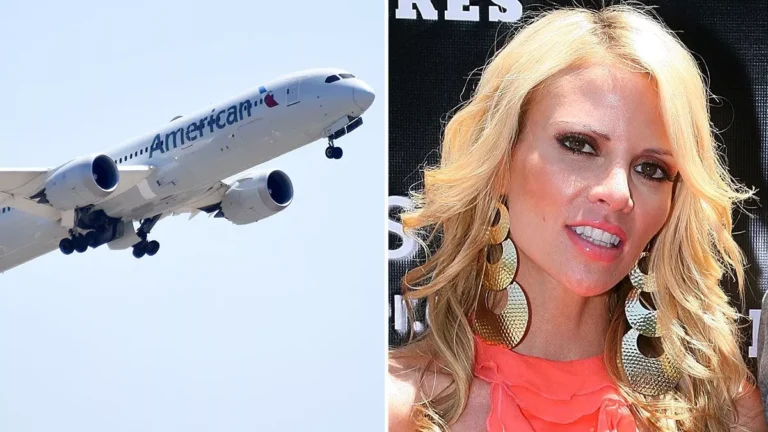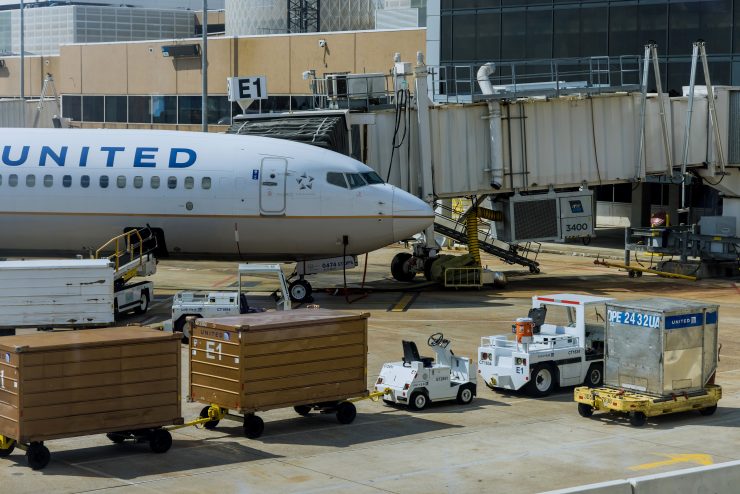“A bit of criticism “, American Airlines Gives New Flight Attendants ‘Poverty Verification Letters’ — ‘Airlines Do Not Want You To Make This A Career’
American Airlines has caught a bit of criticism after rumors emerged online about their plan to address the low wages that their flight attendants make.
The $9 billion company came up with a plan that would help flight attendants who aren’t making enough money to comfortably live in higher-end cities.
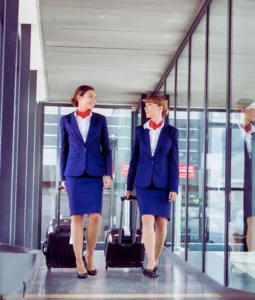
There are many new-hire flight attendants who can’t afford to live in the same city they have been based in and are forced to commute from cheaper towns and cities using their jump seating privileges to get to and from work. In between shifts, many flight attendants also have to rely on crash pads, which are converted houses and apartments where crew members are forced to cram themselves into bunks.
Instead of the airline paying their flight attendants more, they’ve resorted to providing these poverty verification letters, which essentially acknowledge the financial struggle their employees face without addressing the root cause or coming up with a better way to fix it.
To make matters worse, American Airlines CEO Robert Isom has an estimated net worth of $23.5 million, while the airline company itself is a billion-dollar enterprise.According to Business Insider, most airlines don’t even pay flight attendants full wages for the time spent boarding a flight or for delays at the gate. Instead, they compensate for the time beginning when the aircraft doors close and the engine starts, including taxiing”We just want to be paid for the time that we’re actually at work because right now, a three or four-hour delay is standard procedure at the airport,” an Air Canada employee told Insider. “I don’t feel that it is too much to ask, to be paid for the time that we are working. I’m not asking to be paid to sit on my butt at home.”
Flight attendants have previously protested for contract changes that reflect pay raises.
In February 2024, according to CBS News, three separate unions representing flight attendants at major U.S. airlines were picketing and holding rallies at 30 airports insisting on new contracts and higher wages.
Flight attendants expressed frustration that pilots were given huge pay raises last year while they were forced to work for wages that have not increased in several years.
American Airlines has come under scrutiny following rumors about their proposed approach to addressing the low wages that many of their flight attendants earn. This $9 billion company has devised a plan that, rather than increasing salaries, aims to provide “poverty verification letters” for those flight attendants struggling to make ends meet in expensive cities.
Flight attendants, particularly new hires, often find themselves unable to afford to live in the cities where they are based. As a result, many are forced to commute from less expensive towns and cities, utilizing their jump seating privileges to travel to and from work. This commuting lifestyle can be exhausting and stressful, compounded by the necessity of crash pads—converted houses or apartments where multiple crew members cram into bunks between shifts. These accommodations are often crowded and offer little privacy or comfort, making the work-life balance for flight attendants even more challenging.
Rather than addressing the root cause of this financial strain by increasing wages, American Airlines’ solution has been to provide poverty verification letters. These letters essentially acknowledge the financial hardships faced by their employees without taking any substantial steps to alleviate these issues. This move has sparked significant criticism, as it appears to be a superficial solution to a deep-rooted problem.
The contrast between the earnings of American Airlines’ executives and the wages of their flight attendants is stark. Robert Isom, the CEO of American Airlines, has an estimated net worth of $23.5 million. This disparity highlights the inequities within the company, where a billionaire enterprise opts to issue letters rather than address the more significant issue of insufficient pay.
According to Business Insider, flight attendants are not even compensated for the entirety of their work time. Most airlines only begin paying flight attendants when the aircraft doors close and the engine starts, including taxiing time. Time spent boarding the flight or during delays at the gate is often unpaid. This practice adds to the financial strain on flight attendants, who spend considerable amounts of time on the job without appropriate compensation.
An employee of Air Canada expressed frustration over this situation, stating, “We just want to be paid for the time that we’re actually at work because right now, a three or four-hour delay is standard procedure at the airport. I don’t feel that it is too much to ask, to be paid for the time that we are working. I’m not asking to be paid to sit on my butt at home.”
Flight attendants have been vocal about their dissatisfaction with their pay and working conditions. In February 2024, three separate unions representing flight attendants at major U.S. airlines organized pickets and rallies at 30 airports, demanding new contracts and higher wages. These protests reflect the growing discontent among flight attendants, who feel undervalued and underpaid.
The frustration is compounded by the fact that pilots received substantial pay raises last year, while flight attendants’ wages have stagnated. This discrepancy has fueled resentment and a sense of inequity among the airline’s workforce. Flight attendants argue that their work is equally essential to the operation and safety of flights, and they deserve fair compensation that reflects the value of their contributions.
The financial struggles of flight attendants are not unique to American Airlines. The airline industry as a whole has faced criticism for its treatment of these essential workers. The current compensation structure and working conditions for flight attendants are indicative of broader systemic issues within the industry.
To truly address the financial hardships faced by flight attendants, airlines must consider implementing meaningful wage increases and ensuring fair compensation for all hours worked. A comprehensive review of compensation practices, including paying flight attendants for boarding time and delays, is necessary. Additionally, providing adequate housing allowances or subsidies for those based in high-cost cities could alleviate some of the financial burdens on flight attendants.
The provision of poverty verification letters by American Airlines has highlighted the need for a more substantial response to the issue of low wages for flight attendants. While the intention behind these letters might be to acknowledge the financial struggles faced by employees, it falls short of providing a real solution. A more effective approach would involve increasing wages, improving working conditions, and offering financial support to those living in expensive areas.
The airline industry must recognize the essential role that flight attendants play in its operations. These workers are not just service providers; they are trained professionals responsible for ensuring the safety and comfort of passengers. Their compensation should reflect the importance and complexity of their roles.
As the conversation around fair wages and working conditions for flight attendants continues, it is crucial for airlines to listen to the voices of their employees and take meaningful action. The protests and demands for higher wages are a clear indication that the current compensation structure is inadequate. Addressing these concerns with genuine solutions will not only improve the lives of flight attendants but also enhance the overall efficiency and morale within the airline industry.
The issue of low wages for flight attendants at American Airlines and across the industry is a pressing concern that requires immediate and meaningful action. The provision of poverty verification letters is a superficial response that fails to address the root causes of financial hardship. To ensure fair compensation and improve working conditions, airlines must implement wage increases, pay flight attendants for all hours worked, and provide financial support for those living in high-cost areas. Recognizing and valuing the essential contributions of flight attendants is vital for the sustainability and success of the airline industry.
